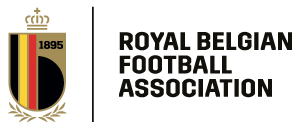SEPARATE WASTE COLLECTION IN STADIUMS – BELGIUM
Belgium Football Team’s hosting stadium did not have any separate collection scheme and all waste generated in the stadium ends in general waste. The main objective of this initiative was to improve waste management during games.
General description of the initiative: Since the stadium didn’t have any separate collection scheme at the time of the beginning of the project and nonetheless no data on total waste quantities, RBFA decided to run a waste composition analysis in order to understand better the needs and potentials of a separate collection scheme. SUEZ and Bruxelles Proprete (Brussels Public Cleanliness Company) run a sampling of the waste generated inside the stadium’s premises (A), waste bins outside the stadium’s premises (B), and litter (C). Since the pilot stadium that run this pilot test serves as the host ground for the home games of the Belgian men’s national teams that play only up to 8 home games per year, repeating this measure could bring certain benefits and improved waste management performances. The only cost that could be avoided with permanent infrastructure for selective waste collection is the price of the equipment (it’s rental and placement/collection). The savings could be €2000 per game. The treatment costs are expected to remain the same. This is why it was advised that the owner of the stadium – the city of Brussels to consider installing permanent infrastructure, as the stadium is also used for athletic competitions and concerts. It could bring added value, as other event organisers could benefit from this already available infrastructure.
Results: The results of this pilot test were more than satisfactory, as the new collection scheme managed to redirect 120 kg of Packaging Material (PMC) from the residual waste. This basically meant that the capture rate of PMC was 83.2%, since 120 kg out of 144.21 kg of PMC was captured. It also reflected in the total amount of residual waste inside the stadium’s premises dropped from 1375.17 kg to 1120 kg. Raising awareness and PMC collection pilot was implemented outside the stadium’s perimeter where 10550 cans were collected and amounting up to 2.85 tons of empty beer cans which were redirected for recycling. These results triggered a larger scale project of installing permanent bins within the stadium’s perimeter, requested by RBFA and approved by the city of Brussels. The city would cover all the costs which would result in an immense added value of the new separate collection scheme as it would cover not only football games but also concerts and different athletic competitions held at the stadium. Furthermore, when it comes to the football games only, dues to larger attendance, RBFA will also look into installing large capacity containers outside the stadium perimeter in order to take the pressure of the public street bins and avoid litter. These containers would be placed at strategic points, mainly along the access streets and right in front of the gates.
Hedeli SASSI, hedeli.sassi@rbfa.be
https://lifetackle.eu/assets/files/B_1_3_Pilot_tests_reports_v3_0.pdf


